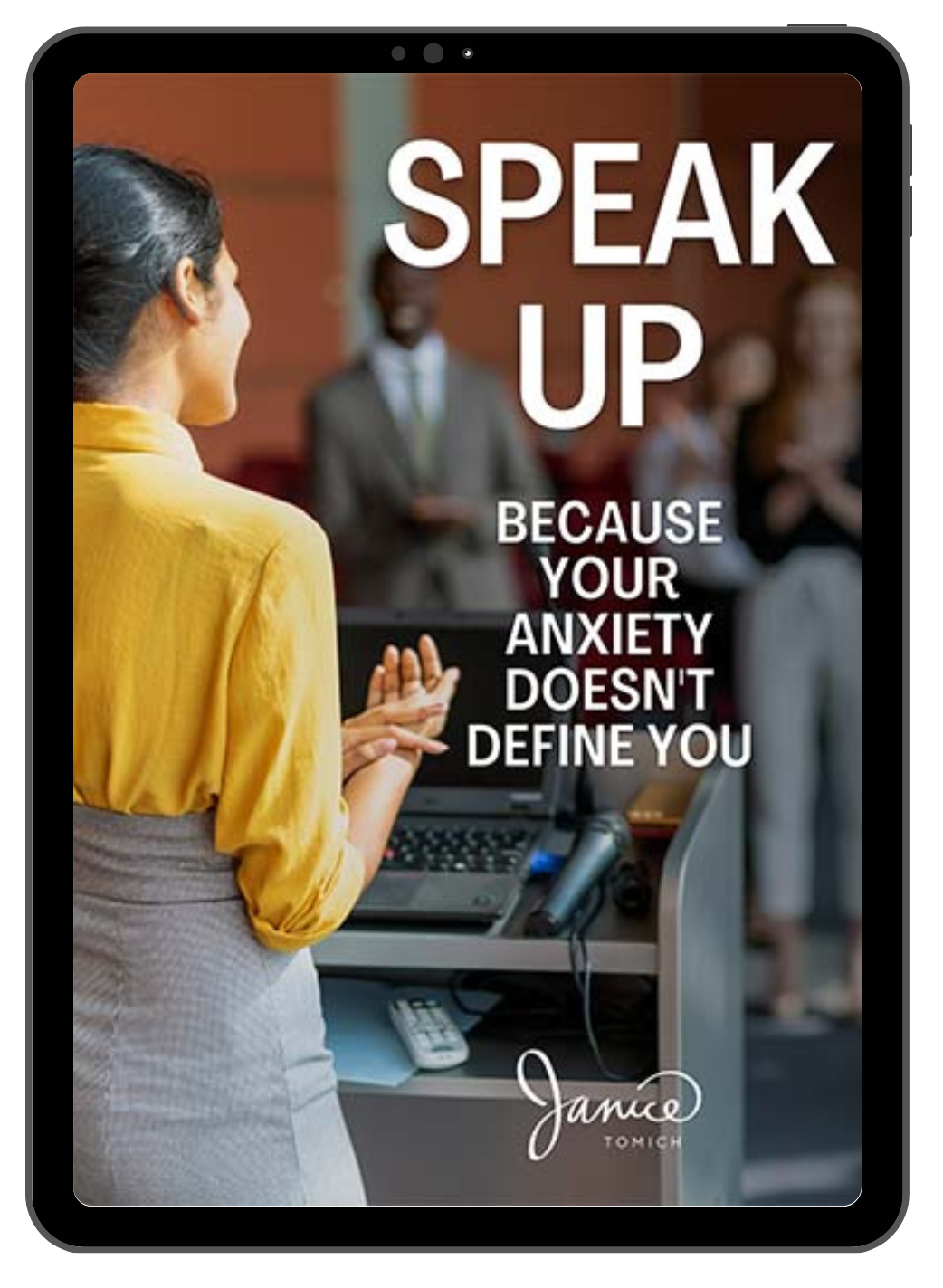It seemed like a great idea at the time to accept that speaking opportunity, didn’t it? But now with your presentation only a few days away you need to learn how to calm yourself down before your speech.
Why is it that the thought of public speaking strikes terror in our hearts?
It’s the fight or flight response that brings up our nerves. Our amygdala gets activated making us feel exposed and vulnerable in front of our colleagues/peers.
Is there anyone who doesn’t feel nervous or anxious when their presentation is looming? No, with one qualifier…only those whose ego may have jumped a few strides ahead of their ability and aren’t truly reflecting on what they’ve signed up for.
Ignoring the emotional rollercoaster can work in the short time but at some point it will come back to bite you.
A day or two before your presentation, nerves should emerge if you’re taking your time under bright lights seriously. It’s an honour and a responsibility to share your vision and ideas.
What I’ve come to know as a speaker coach is three exercises if used and practiced will work to manage public speaking anxiety.
1. Relax Yourself with 4-7-8 Breathing
Thank you to Dr. Andrew Weil for sharing the 4-7-8 breathing technique video that promises those of us who have anxiety issues a remedy for relief. As with all breath work you’ll instantly feel more relaxed and this exercise will take you even a little further to relaxation nirvana.
How do you practice 4-7-8 breathing? With the tip of your tongue on the roof of your mouth behind your two front teeth, take a breath in through your nose for a count of four, then hold for the count of seven, and then expel through your mouth for eight.
I swear by this one, but with a caveat—you need to practice it a few times a day. Don’t expect to call on it the first time on your way up to the podium.
2. Flow and Labelling
This exercise is the most difficult of the three. Not because it’s hard to do, but because it’s hard to be mindful and to vigilantly be observe our thoughts and emotions. Remember that our thoughts are not reality. They are stories we are conjuring.
You’ll recognize this the flow and labelling relaxation technique as part of Buddhist practice.
Start by just stopping. Feel the anxiety. You’ll feel anxiety resting in the pit of your stomach.
Then label it as “feeling anxious,” but don’t qualify the reason why. Give it the room to pass through you. Let it flow out as easily as it came in.
In essence flow and labelling means detaching from our emotions—being an observer of them.
My clients report back that when they can wrap their head around this way of being it’s the most helpful of the exercises I share. You’ll find the technique explained at length by Dr. Christopher Germer in his book the mindful path to self-compassion.
3. Visualization Exercise
Watch yourself being successful. It’s a technique that athletes use. A golfer will visualize her stroke, the click of the club to ball, and the trajectory of the ball into the cup.
It works for public speaking too.
In your “minds eye,” visualize yourself:
- Feeling excited watch yourself enter your speaking venue
- Greet a few people with a firm handshake and feel the positive energy on contact
- Take your place in the audience or behind the stage waiting to be introduced
- Feel how happy you are to share the information your audience has come to hear Take your place on stage and look out into the sea of your champions
- Deliver a presentation that connects with them
- Stand and take in the applause
- Walk off the stage with a skip in your step and give yourself a mental high five.
The key to this technique is not only “watching” yourself but feeling the positive feelings. It’s those feelings that you will call on when your anxiety rises.
Three exercises that are so easy, aren’t they? Simply breathing, feeling, and being present, however, the trick for success, like all things worthwhile, is in the work (practice).
If you’re serious about honing your public speaking skills I have a few books I highly recommend. They’re great resources that include insight into managing public speaking anxiety: the untethered soul by Michael Singer, Choked by Sian Beilock, and Confessions of a Public Speaker by Scott Berkun. I’ve also compiled my favorite public speaking books in a list, along with executive presence books which are worth your time.
And those butterflies, they’re worth any angst and learning to manage anxiety because the feeling of connecting to your audience and sharing what you know is priceless.
To your voice!
If you’re feeling unheard or misunderstood, I can help.


